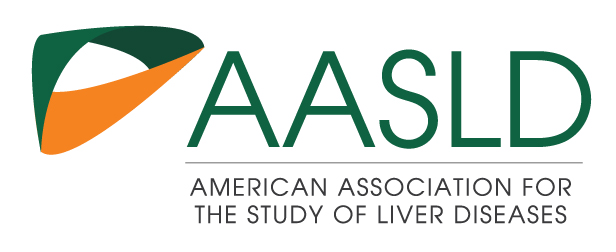Viral Infections
An Introduction to Viral Infections
Viruses are intracellular parasites, and are the most widespread organisms on Earth. They cause acute disease, such as gastroenteritis or influenza, or chronic disease, such as HIV or hepatitis. Emerging infections, such as SARS, MERS, avian influenza, Ebola and most recently, the devastating SARS-Cov-2 pandemic pose an increasing threat to human health. Numerous substances with antiviral activity are in clinical use. The use of protease inhibitors and highly active antiretroviral therapy has transformed the management of HIV. Promising emerging therapeutic approaches include neutralising antibodies. In addition, the current success of mRNA vaccines against SARS-Cov-2 heralds a new era of vaccinology. However, the threat of drug- and vaccine-resistant viral mutants are a major problem.
Expert video highlights and insights from the conference hub and comprehensive peer-reviewed articles from our journal portfolio provide updates on the changing treatment landscape. To learn more about how the latest developments impact on patient outcomes view our expert-led learning activities.
Our supporting partners do not constitute an endorsement of the content on this page.

The International AIDS Society Conference 2025 (IAS 2025) brought together global leaders in HIV science, policy, and community advocacy against a backdrop of funding crises and scientific breakthroughs. In Kigali, Rwanda, one theme rang clear: innovation alone isn’t enough. Delivery, access, and equity must catch up with the science. We spoke with leading experts and advocates to ask: What single development at IAS 2025 will have the greatest impact on HIV prevention or care going forward? Their answers capture the momentum, and the challenges, that will shape the next era of the global HIV response.

Mitchell Warren discusses insights from the IAS 2025 session, “Re-imagining prevention: Planning for sustainable PrEP access in the new funding context”, highlighting the most pressing global HIV prevention priorities, the promise of long-acting pre-exposure prophylaxis (PrEP) technologies, and the need for urgent, equity-focused investment, especially amid uncertain funding landscapes.

Prof. Kenneth Mayer discusses promising Phase 2 results for MK‑8527, a once-monthly oral PrEP candidate. He highlights its favourable safety profile, potential to improve adherence, and how upcoming Phase 3 trials could shape the future of HIV prevention across diverse global populations.

"Even with intensive support, short-cycle therapy did not match the effectiveness of daily treatment in adolescents." - Dr Adeodata R. Kekitiinwa Short-cycle therapy (SCT) has previously shown promise in maintaining viral suppression among young people living with HIV. In ...

Physician burnout is at a critical point. In this episode, Nicky speaks with Dr Alfred Atanda about why so many physicians are burning out and what can be done to change the trend. From personal experience to system-wide solutions, Dr Atanda shares valuable insights on improving physician well-being and building a more effective healthcare culture.

The US Food and Drug Administration (FDA) has expanded the indication of the pangenotypic direct-acting antiviral (DAA) combination, glecaprevir/pibrentasvir (Mavyret®; AbbVie Inc., North Chicago, IL, USA), to include the treatment of acute hepatitis C virus (HCV) infection in adults ...

The World Vaccine Congress Washington 2025, 21-24 April 2025, delivered another landmark year, bringing together more than 4,000 global stakeholders from biotechnology, pharmaceuticals, government, academia and the broader global health ecosystem. The event reinforced its standing as an influential and collaborative forum in ...

In this episode, we explore the future of continuing medical education (CME) with the team behind touchIME. Hannah Fisher and Matthew Goodwin share insights into global and US trends, the importance of patient inclusivity and how educational outcomes are evolving to better measure the direct impact of learning on clinical practice and patient care.

A double-stranded DNA virus of the Orthopoxvirus family, mpox (formerly monkeypox), continues to infect people daily, following the 2022 global outbreak.1 Two clades (clade 1 and clade 2) have been identified, with the 2022 outbreak caused by a subclade of clade 2, referred to as ...

Watch two experts discuss HPV-related disease, vaccination scheduling and strategies to increase uptake.






As 2024 draws to a close, we’re celebrating a wonderful year of content. From insightful expert Q&As and peer-reviewed articles to conference highlights and a wealth of medical education, it’s been a year filled with content that we hope has been useful to our audience. We’ve had the privilege of connecting with leading experts and working alongside medical societies to support the infectious diseases community with high-quality, easily accessible content.

In this episode, we explore how point-of-care testing is transforming the management of sexually transmitted infections (STIs). Joined by Dr Libby van Gerwen, we discuss the rising global STI rates and the role these innovative tests play in addressing the issue. We also explore the challenges current point-of-care tests face and how next-generation advancements could further transform the future of STI diagnosis and treatment.

Two experts discuss best practices for antiretroviral therapy (ART) selection for people living with HIV.





Watch three experts describe the HIV life cycle, the rationale for ART and how to manage ART resistance.





Learn about the integration of the latest data in antiretroviral management of HIV, challenges clinicians may face when adopting new strategies and updates from the Conference of Retroviruses and Opportunistic Infections (CROI) 2024 are reported here by Dr Eric Daar, Division of HIV Medicine, Harbor-UCLA Medical Center, Atlanta, GA, USA.
Latest articles videos and clinical updates - straight to your inbox
Log into your Touch Account
Earn and track your CME credits on the go, save articles for later, and follow the latest congress coverage.
Register now for FREE Access
Register for free to hear about the latest expert-led education, peer-reviewed articles, conference highlights, and innovative CME activities.
Sign up with an Email
Or use a Social Account.
This Functionality is for
Members Only
Explore the latest in medical education and stay current in your field. Create a free account to track your learning.







